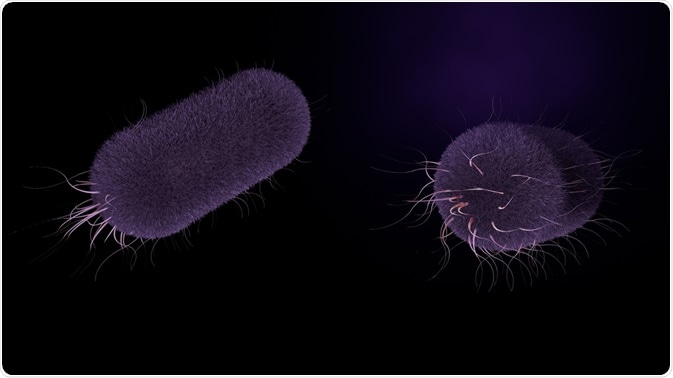According to the World Health Organization (WHO), typhoid fever continues to affect between 11 and 20 million people each year and is responsible for between 128,000 and 161,000 deaths each year.
The pathogen that is responsible for causing typhoid fever was not established until the late 19th century, which subsequently led to the introduction of the first effective vaccination against this organism one year later. The development of a vaccine against typhoid fever had a notable effect on its incidence, particularly for highly susceptible populations, such as those serving in the military.

Image Credit: Steven_Mol / Shutterstock.com
Early history
Some historians believe that typhoid fever was responsible for a widespread plague in Athens in 430 BC, which proved fatal for one-third of the population, including the leader at the time, Pericles. His successor, Thucydides, also contracted the same disease, although it did not prove fatal.
Jamestown, which was an English colony in Virginia, is also thought by some historians to have died out as a result of typhoid fever. In fact, the fever proved fatal for more than 6,000 settlers between 1607 and 1624, and may have been responsible for eliminating the entire colony.
Military and war environments have often been subjected to the presence of typhoid fever throughout history. In excess of 80,000 soldiers died as a result of typhoid fever or dysentery in the American Civil War. Likewise, the Spanish-American War led to infections with typhoid, both on the field and in training camps.
Mary Mallon “Typhoid Mary”
Mary Mallon, who is also commonly known as Typhoid Mary, was the most widely known carrier of typhoid fever. She was the first person in the United States to be identified as a carrier of the pathogen responsible for the disease, although she did not experience any symptoms related to the condition.
Mary Mallon worked as a cook and throughout her career and is thought to have infected 51 people, of which 3 cases proved fatal. She was forcibly isolated for quarantine purposes twice in her life, once in 1907 and again in 1915. The second time she was not released and later died in isolation at the age of 69.
Typhoid Mary | The Original Asymptomatic Super-Spreader
Prevention and vaccine development
William Budd was an English doctor responsible for treating an outbreak of typhoid in 1838 when he noted that the poison, as he then called it, was present in the excretions of the infected and could be transmitted to healthy people through consumption of contaminated water. Upon realizing this association, Budd suggested isolating excrement to help control future outbreaks.
Karl Joseph Eberth was the first to describe the bacillus that was suspected to cause typhoid fever in 1880. Four years later, pathologist Georg Gaffky confirmed this link, naming the bacillus Eberthella typhi, which is known today as Salmonella typhosus, (also known as Bacillus typhosus).
The first effective vaccine for typhoid was developed by Almroth Edward Wright and was introduced for military use in 1896. The development and distribution of this vaccine made a significant improvement to the health of soldiers at war, who were more likely to be killed by typhoid than in combat at that time. This vaccine was further developed over the following years in London.
Throughout the 20th century, the incidence of typhoid fever steadily declined, which was both due to the introduction of vaccinations, as well as improvements in public sanitation and hygiene. In particular, the chlorination of drinking water made a significant impact on the number of individuals affected by the disease.
Today, typhoid fever is considered a rare condition among developed countries, with an incidence rate of approximately five cases per million per year.
References
Further Reading
Last Updated: May 3, 2023